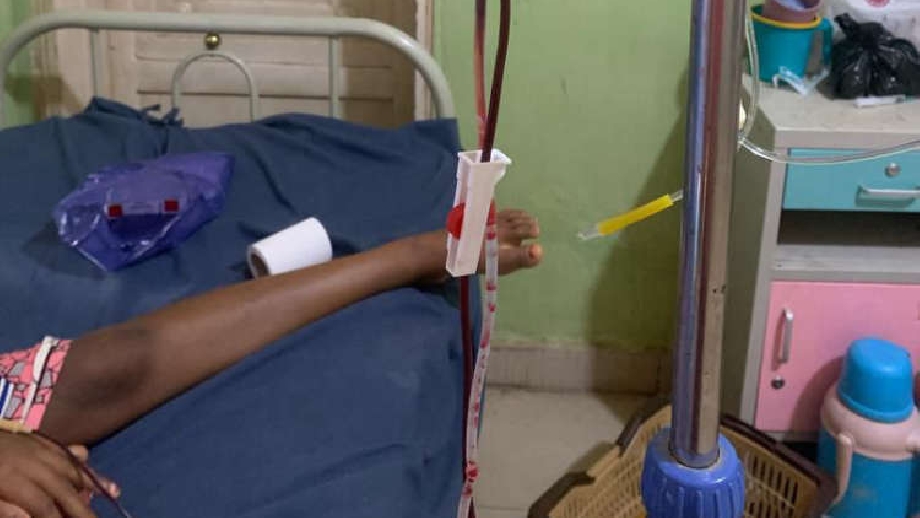
Malaria continues to be a major public health concern in Nigeria and Kano State, particularly where year-round transmission is prevalent.
Despite ongoing interventions, the serious mosquito-borne infectious disease remains persistent, claiming several lives, straining the healthcare systems, and impacting the productivity of communities.
While many do not take the life-threatening disease seriously, Mallam Muhammadu Hussaini, a retiree, does.
Mallam Hussaini shared how he lost two of his grandchildren and a daughter to a severe malaria attack.
“Malaria is dangerous, but the people here don't take it seriously. I lost two of my grandchildren and one of my daughters to malaria,” he said.
While Malam Hussaini is still crying about his losses, Asiya Mohammad, who almost gave up on life after suffering from stage 3 malaria.
She shared her experience on how the disease can quickly deteriorate into a serious medical condition with a tendency to either kill or inflict permanent damage on its victim.
“I almost lost my life because of malaria. First, we thought it would go away after two days, but it got serious, and I was admitted to the hospital.
"I'm happy I have recovered from it now, but I no longer joke with my mosquito net anymore.”
597,000 Died from Malaria in 2023 - WHO
In 2023, the World Health Organization (WHO) estimated that 597,000 people died from malaria. This number is nearly the same as the 600,000 deaths reported in 2022.
The vast majority of these deaths (95%), according to WHO, occurred in Africa.
In Kano, one of Nigeria's most populous states, about 4.1 million patients suffering from malaria visited hospitals in 2024, and 99.5 percent of them were cured. However, 58 of them lost their lives, according to the state government.
Barriers to Effective Response
Several challenges hinder the fight against severe malaria in the State, including healthcare system gaps and climate change as a result of poor waste management and sanitation, which creates breeding spaces for Plasmodium Falciparum, the deadliest malaria parasite and the dominant strain in Northern Nigeria.
As of 2024, Kano State recorded over 2 million malaria cases, with the most vulnerable groups being children under five and pregnant women, and its prevalence among residents is now hovering around 40 percent.
A medical practitioner from the Department of Family Medicine at the Malam Aminu Kano Teaching Hospital, AKTH, Dr. Mohammad Lukman, warned that the widespread malaria in Kano can rapidly escalate and affect “vital organs such as the brain, liver, kidneys, and lungs.”
Dr. Lukman further cautioned that “severe malaria is especially dangerous and can lead to long-term damage or death if not treated promptly.”
According to him, “prevention remains the most effective method for reducing the spread and impact of malaria, just as he recommended environmental sanitation, the use of Insecticide Treated Nets, Insecticide sprays, and Prompt Diagnosis and Treatment.”
The chairman of the Accountability Mechanism on Maternal Newborn and Child Health in Kano State (AMMkas), Salisu Yusuf, opined that, looking at the prevailing environmental factors, more needs to be done by both the government and residents to tackle the spread of malaria in the state.
“The previous government spread insecticide to address this challenge, but we have not been seeing this with this current government. So we are urging them to do the needful,” he urged.
Though vaccination against the malaria parasite is a welcome development as far as prevention is concerned, the medical practitioner said it is still in its trial phase, and checks by Nigeria Info revealed that Kano is yet to receive any dose.
Speaking on the sidelines of World Malaria Day with the theme “Malaria Ends with Us: Reinvest, Reimagine, Reignite,” the Kano Commissioner of Health, Dr Abubakar Labaran Yusuf, says the government is committed to ending malaria.
Dr. Labaran confirmed that “doses of the malaria vaccine are presently on trial in Kebbi and Bayelsa states, expressing optimism that Kano will follow suit after the trial phase.”
Dr. Labaran further disclosed that over “4.1 million patients visited health facilities in Kano to treat malaria last year, out of which 3.153 million were treated, while 58 lives were lost.”
He, however, says the State government has adopted some measures to curb the spread of malaria.
“We have started combating malaria through various measures, including distributing insecticide-treated nets (ITNs), providing antimalarial drugs, and implementing community-based interventions.
"These efforts aim to reduce the burden of the disease and improve the health of the population, particularly children and pregnant women,” the commissioner said.
Driven by environmental factors, limited access to prevention tools, and insufficient health awareness, Malaria remains a public health concern in Kano, amplifying the need for government and other concerned stakeholders to take more sustainable actions towards addressing it.


